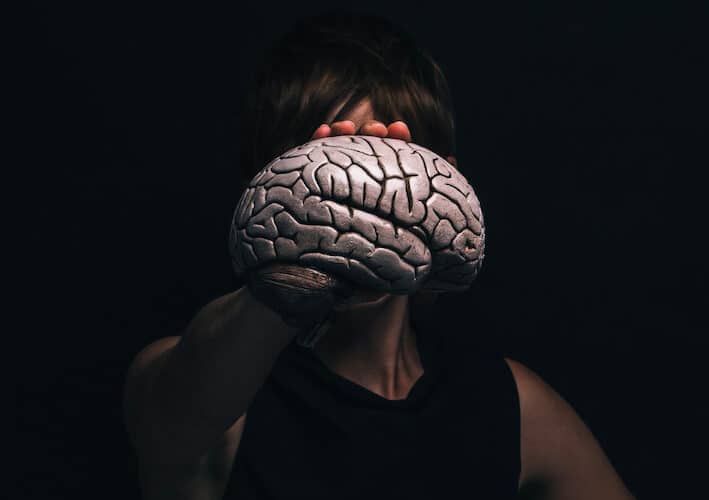Chronic breathing disorders during sleep are associated with key biomarkers of Alzheimer’s, according to a new study. The researchers found that sleep-disordered breathing (SDB) is linked to greater deposits of beta-amyloid—an abnormal protein that is a hallmark of Alzheimer’s—in regions of the brain that are especially sensitive to neurodegeneration.
Their findings highlight the importance of identifying and treating SDB to reduce the risk of Alzheimer’s.
SDB includes a host of chronic conditions in breathing that disrupt people’s sleeping patterns. One of the most common SDB diseases is called obstructive sleep apnea (OSA), a condition in which the airway is partially or fully blocked during sleep.
While previous research has linked sleep apnea to higher levels of beta-amyloid and an abnormal protein associated with Alzheimer’s called tau, it has never been clear which brain areas are the most vulnerable to the effects of sleep apnea, according to Géraldine Rauchs, a researcher at French Institute of Health and Medical Research (INSERM) who worked on the latest study.
“The originality of our study relies [on] the fact that we used different neuro-imaging techniques to determine which brain areas are the most sensitive to the effects of sleep apnea, and to reveal the underlying mechanisms,” Rauchs wrote in an email.
Rauchs and a team of researchers conducted a randomized clinical trial and assessed 127 elderly people. The participants underwent a sleep study called polysomnography to assess whether they had SDB. Through cognitive and behavioral assessments, the researchers evaluated their brain’s memory attention and processing speed. The scientists generated images of the participants’ brains by using Positron emission tomography (PET) scans and magnetic resonance imaging (MRI).
The researchers found that participants with SDB had greater burdens of beta-amyloid in the brain’s posterior cingulate cortex and the precuneus—areas of the brain that are involved with our memory and consciousness. In the same regions of the brain, the scientists also found that participants with SDB had greater metabolism, blood stream and gray matter volume.
The study suggests that the higher levels of brain activity may be linked to neuroinflammation, processes that play a central role in Alzheimer’s and are associated with higher levels of beta-amyloid.
The relationship between sleep and Alzheimer’s is complex but important. Various studies have found that chronic sleep deprivation—whether from poor sleep hygiene or sleep disorders—is linked to the development of dementia. One recent study out of Boston University examined how fluid washes through the brain during sleep, cleansing away toxic proteins. There are plenty of other brain-protecting mechanisms of sleep that researchers continue to investigate.
The latest findings highlight the need for screening people who are asymptomatic to SDB. Interestingly, however, the team found that SDB-associated brain changes had no effect on the participants’ cognitive performance, as well as self-reported cognitive and sleep difficulties.
Rauchs suggests a possible explanation for this finding is that the patients were still at an early stage of the disease. The participants were also highly educated, and may have cognitive reserves to cope with the effects of poor sleep, Rauchs notes.
Undiagnosed sleep disorders come at a high cost. Sleep apnea may affect as many as 170 million people across North and South America and there may be 54 million cases in the United States. And according to American Academy of Sleep Medicine (AASM), the economic burden of undiagnosed sleep apnea among adults in the United States is about $149.6 billion, resulting from motor vehicle accidents, workplace accidents and loss in productivity.
Here’s the good news: sleep apnea is treatable and the continuous positive airway pressure (CPAP) therapy is the gold standard. Patients wear a face or nasal mask during sleep, which is connected to a pump that provides flow of air into the nasal passages. And a recent study shows that patients with obstructive sleep apnea who underwent CPAP had improved cognitive function.





